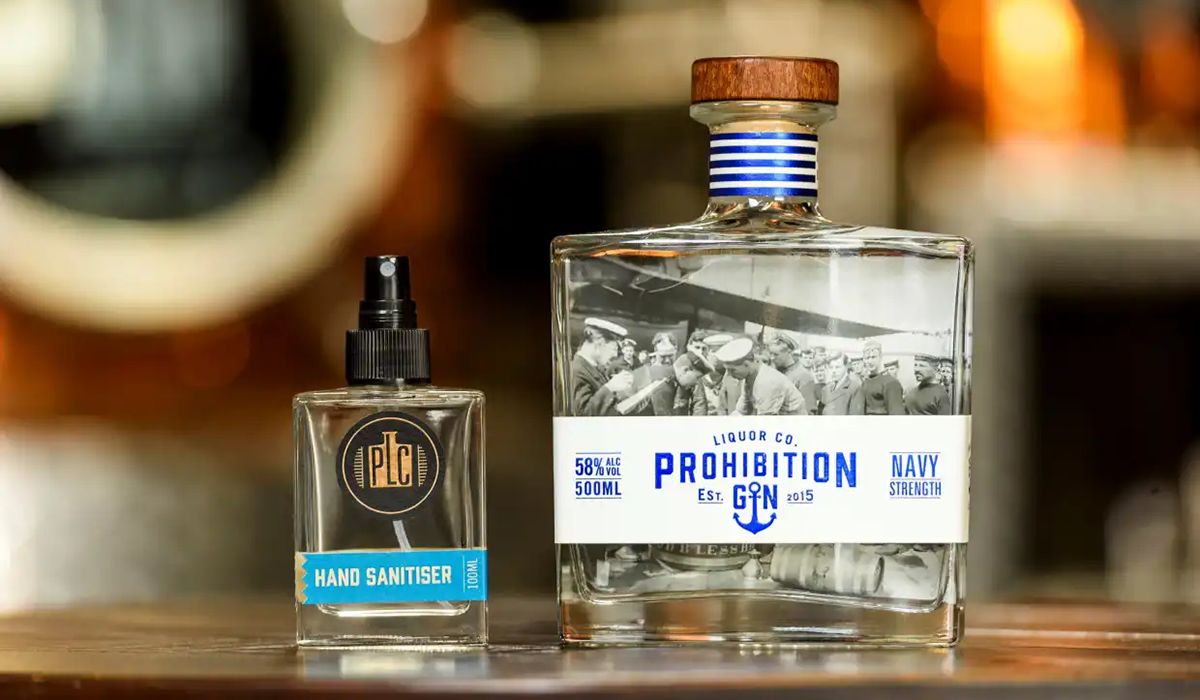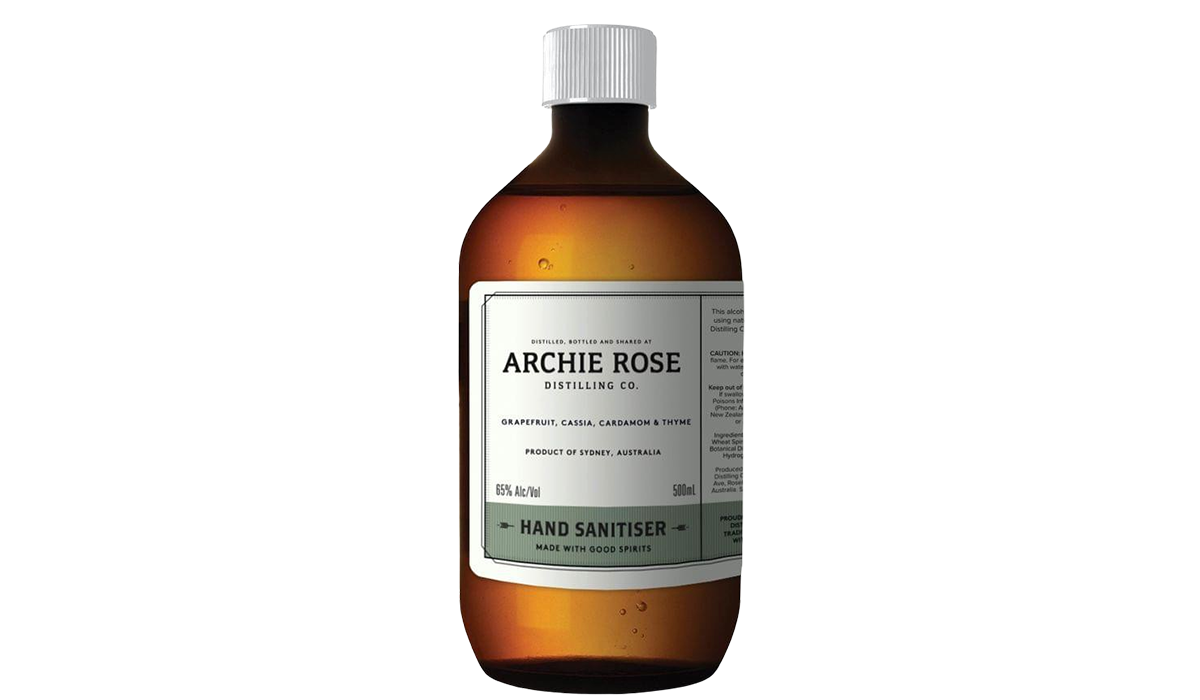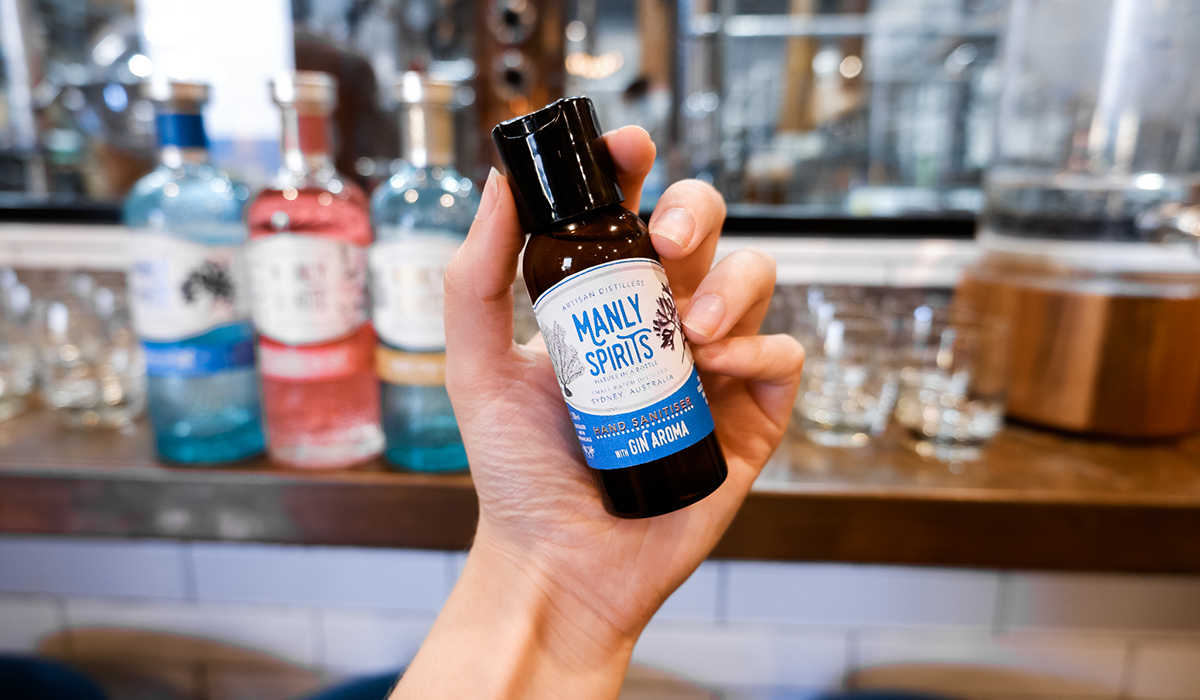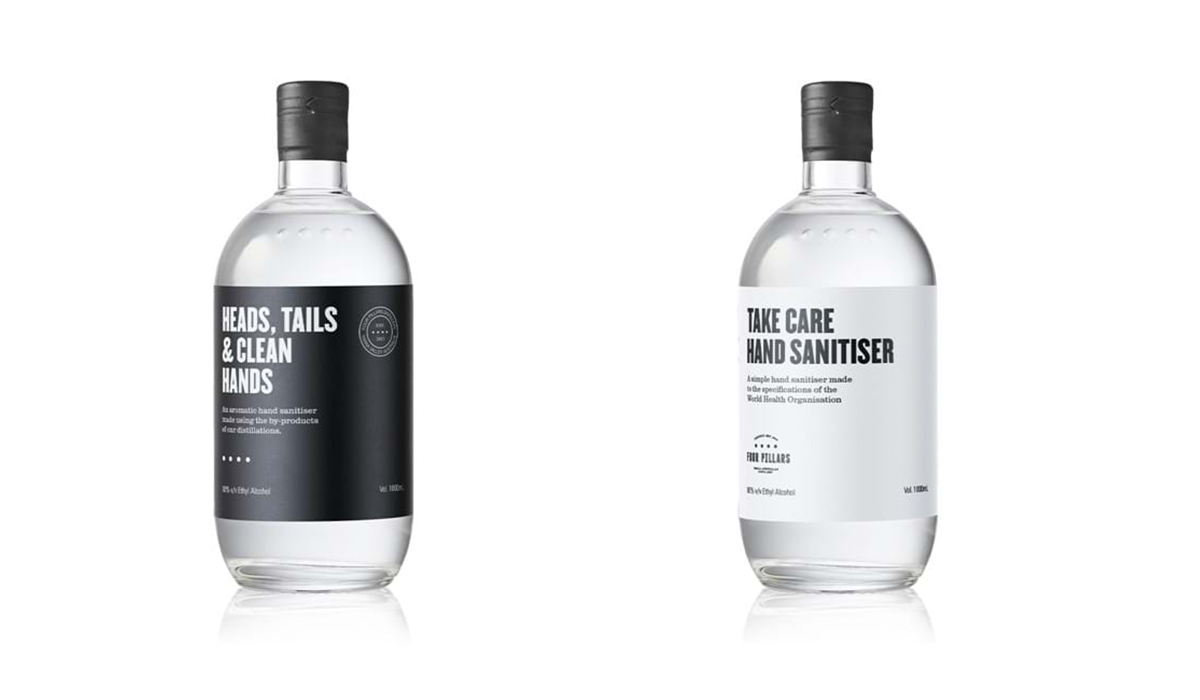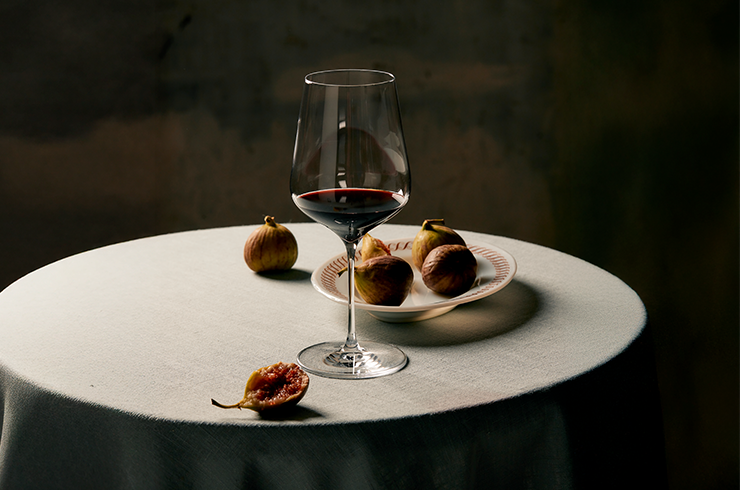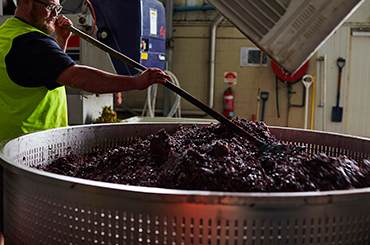The effects of the current COVID-19 pandemic are such that export markets for Australian wine and spirits have practically come to a standstill. And, if you’ve watched the news or been to the supermarket in the last month, you’ll be aware of extreme shortages of hand sanitiser across the country – a product crucial to keeping workers on the front lines safe and flattening the rate of infection in the broader community.
Now, local producers, wineries and distilleries are pivoting to create antiseptic ethanol from product destined for export.
Now, local producers, wineries and distilleries are pivoting to create antiseptic ethanol from product destined for export.
The hand-sanitiser shortage stems from a lack of isopropyl or “rubbing alcohol”, the active ingredient in the product which is highly successful as an antiseptic. Ethanol, produced in fermentation (the process used to make wine and spirits), has a similar disinfectant property to rubbing alcohol and, if used in the right ratio, can be an effective substitute.
What began as a practical approach for wineries and distilleries in place of being able to purchase the real thing for consumers and employees, has led to boutique hand sanitiser being sold to the public and medical industry.
In Western Australia, Ferngrove Wine and Whipper Snapper Distillery have joined forces with chemists at LabWest to produce hand sanitiser compliant with World Health Organisation standards. Ferngrove is supplying 15,000 litres of wine per week to Whipper Snapper, who will distil it twice to create a pure ethanol product.
Ferngrove managing director Andrew Blyth said the group was in a fortunate position to be able to help and the project was in the spirit of collaboration for the greater good. “Given export markets have come to a standstill, we have the opportunity to supply a large quantity of semillon and sauvignon blanc that was destined for export markets. We are not sure when these markets will return, so we feel the best thing to do right now is help the community in this time of crisis,” he says.
Others have been working in-house. Victorian gin distillery Four Pillars started making hand sanitiser from an unpalatable by-product of the distillation process, initially making a litre or two a day and giving any leftover to the local retirement village and church. It is now selling the “Heads, Tails & Clean Hands” sanitiser to the public and another labelled “Take Care” to health workers.
Boutique producers like Archie Rose Distilling Co., Cape Byron Distillery, Manly Spirits Co. and Prohibition Liquor Co. are making “flavoured” hand sanitisers, perfumed with lemon myrtle, citrus oil and rainforest botanicals. Big names like Bundaberg Rum have committed to donating huge amounts of ethanol to local government for distribution to manufacturers.
This pivot towards ethanol and hand-sanitiser production is creating another source of income for many producers that are losing business as the result of the closure of cellar doors and restaurants – and hopefully, it will also help them to retain workers. And for others in a position to donate, the initiative is fostering a sense of community and generosity in a difficult and uncertain time.
Find out more about the effects of COVID-19 on the wine industry (and how you can help) here.
Image credit: Prohibition Liquor Co. (1/4), Archie Rose Distilling Co. (2/4), Manly Spirits Co. (3/4), Four Pillars (4/4).
What began as a practical approach for wineries and distilleries in place of being able to purchase the real thing for consumers and employees, has led to boutique hand sanitiser being sold to the public and medical industry.
In Western Australia, Ferngrove Wine and Whipper Snapper Distillery have joined forces with chemists at LabWest to produce hand sanitiser compliant with World Health Organisation standards. Ferngrove is supplying 15,000 litres of wine per week to Whipper Snapper, who will distil it twice to create a pure ethanol product.
Ferngrove managing director Andrew Blyth said the group was in a fortunate position to be able to help and the project was in the spirit of collaboration for the greater good. “Given export markets have come to a standstill, we have the opportunity to supply a large quantity of semillon and sauvignon blanc that was destined for export markets. We are not sure when these markets will return, so we feel the best thing to do right now is help the community in this time of crisis,” he says.
Others have been working in-house. Victorian gin distillery Four Pillars started making hand sanitiser from an unpalatable by-product of the distillation process, initially making a litre or two a day and giving any leftover to the local retirement village and church. It is now selling the “Heads, Tails & Clean Hands” sanitiser to the public and another labelled “Take Care” to health workers.
Boutique producers like Archie Rose Distilling Co., Cape Byron Distillery, Manly Spirits Co. and Prohibition Liquor Co. are making “flavoured” hand sanitisers, perfumed with lemon myrtle, citrus oil and rainforest botanicals. Big names like Bundaberg Rum have committed to donating huge amounts of ethanol to local government for distribution to manufacturers.
This pivot towards ethanol and hand-sanitiser production is creating another source of income for many producers that are losing business as the result of the closure of cellar doors and restaurants – and hopefully, it will also help them to retain workers. And for others in a position to donate, the initiative is fostering a sense of community and generosity in a difficult and uncertain time.
Find out more about the effects of COVID-19 on the wine industry (and how you can help) here.
Image credit: Prohibition Liquor Co. (1/4), Archie Rose Distilling Co. (2/4), Manly Spirits Co. (3/4), Four Pillars (4/4).
Latest Articles
-
Win
Win a stunning collection of Plumm glassware and wine, valued at over $500
2 days ago -
Wine Lists
Top Christmas wines under $30 (and five worth splurging on)
2 days ago -
Wine Lists
Why you should drink Australian this festive season (and 80 of our best wines to try)
2 days ago -
From the tasting team
The Aussie wines the Halliday Tasting Team will be opening this festive season
2 days ago
